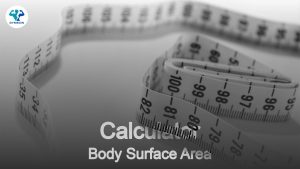Creatine can be taken both before and after a workout, but post-workout may enhance recovery. Consistency in daily intake is more important than timing.
If you’re hitting the gym and looking to boost your performance, you’ve probably heard about creatine. It’s one of the most popular supplements out there, but there’s a big question on everyone’s mind: should you take creatine before or after your workout? Let’s break it down and figure out what’s best for you.
What is Creatine?
Before we dive into the timing, let’s quickly cover what creatine actually is. Creatine is a substance that your body naturally produces, mainly in your muscles. It helps supply energy during high-intensity exercise or heavy lifting. When you take creatine as a supplement, it can increase your muscle stores, which may help improve your performance and muscle growth.
Why Do People Use Creatine?
People use creatine for a bunch of reasons:
- Increased Strength: Many folks find that creatine helps them lift heavier weights.
- Better Endurance: It can also help with short bursts of energy, like sprinting or high-intensity interval training (HIIT).
- Muscle Growth: Creatine can lead to increased muscle mass over time, which is a big draw for bodybuilders and fitness enthusiasts.
When Should You Take Creatine?
Now, let’s get to the heart of the matter: when’s the best time to take creatine? There are two main camps here: before your workout and after your workout. Let’s explore both options.
Taking Creatine Before a Workout
Some people swear by taking creatine before they hit the gym. Here’s why:
- Immediate Energy Boost: Taking creatine before your workout can help ensure that your muscles are loaded with energy right when you need it. This can be especially helpful for those intense lifting sessions or cardio bursts.
- Mental Edge: Some folks feel more pumped and ready to go when they take their supplements beforehand. It’s like a little mental boost to get you in the zone.
Taking Creatine After a Workout
On the flip side, many people prefer to take creatine after their workout. Here’s the reasoning behind that:
- Muscle Recovery: After a workout, your muscles are primed to absorb nutrients. Taking creatine post-workout can help with recovery and muscle repair.
- Insulin Spike: If you take creatine with a post-workout meal or shake that includes carbs, it can help spike your insulin levels. This spike can help shuttle creatine into your muscles more effectively.
What Does the Research Say?
So, what does the science say about the timing of creatine? Studies have shown that both pre- and post-workout supplementation can be effective. However, some research suggests that taking creatine after your workout might have a slight edge when it comes to muscle recovery and growth.
The Best of Both Worlds: Timing and Consistency
If you’re still unsure, here’s a thought: why not do both? Some people choose to take a smaller dose before their workout and a larger dose afterward. This way, you can enjoy the benefits of both timing strategies. Just remember, consistency is key. It’s more important to take creatine regularly than to stress about the exact timing.
How Much Creatine Should You Take?
Now that we’ve covered when to take it, let’s talk about how much creatine you should be taking. The standard dose is about 5 grams per day. Some people start with a “loading phase,” where they take 20 grams a day for about a week, but this isn’t necessary for everyone. Just sticking to 5 grams daily is usually enough to see results over time.
Types of Creatine
There are several types of creatine on the market, and it can be a bit overwhelming. Here are a few common types:
- Creatine Monohydrate: This is the most researched and widely used form. It’s effective and usually the most affordable.
- Creatine Ethyl Ester: Some people believe this form is better absorbed, but research is mixed.
- Buffered Creatine: This type claims to reduce side effects like bloating, but again, the evidence isn’t super strong.
For most people, sticking with creatine monohydrate is a safe bet.
Potential Side Effects of Creatine
While creatine is generally safe for most people, it’s good to be aware of potential side effects. Some folks might experience:
- Bloating: This can happen, especially during the loading phase.
- Stomach Discomfort: Some people might feel a bit queasy after taking creatine.
- Weight Gain: This is usually due to water retention in your muscles, which can be a good thing if you’re looking to bulk up.
If you experience any severe side effects, it’s best to consult with a healthcare professional.




